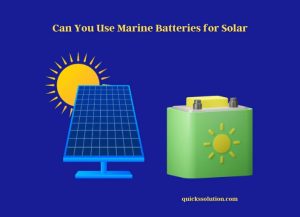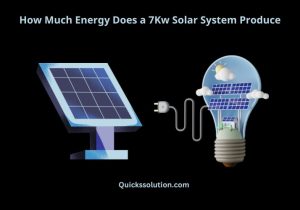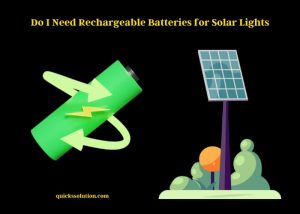Published on: June 14, 2023
Written by John Stevens / Fact-checked by Hashim Manna
If you have a Solar panel at home, you may be wondering what happens when it gets wet. Solar panels are designed to withstand the elements, but that doesn’t mean they can’t be damaged by weather. High winds, hail, and heavy snow can all break or crack solar panels, but one of the most common ways solar panels are damaged is by getting wet.

We’ve all seen them—those shiny arrays, glimmering on rooftops, catching the sun’s rays and magically transforming them into electricity. Solar panels are nothing short of technological marvels, harnessing the raw power of the sun and turning it into something we can use. But have you ever wondered what happens when these panels get wet? Does their performance suffer? Are they safe? Stick around, and we’ll dive into the captivating world of solar panel operation in wet conditions.
What Happens When Solar Panels Get Wet?
It’s an odd question, isn’t it? After all, these devices are meant to be outdoors, open to the elements, so you’d think that a little water wouldn’t be much of a problem. But is that really the case?
When solar panels get wet, they continue to function, producing electricity as they normally would. This is because they are designed to withstand different weather conditions, including rain. Surprisingly, they can even work more efficiently when they are wet due to a cooling effect that the water has on the panels.
The Science Behind Wet Solar Panels
Solar Panel Structure and Wet-Weather Tolerance
The key to understanding what happens when solar panels get wet lies in their structure. Solar panels are constructed with durable, weather-resistant materials like tempered glass and aluminum. This construction prevents moisture from entering and damaging the inner workings of the panel.
Solar Panels and Rain: A Refreshing Combo
Rain, in fact, can be beneficial to solar panels. In addition to its cooling effect, rain also cleans the surface of the panels. Over time, dust and debris accumulate on the panels, which can affect their efficiency. A good shower can wash these away, improving the panels’ performance.
Safety Concerns: Can Wet Solar Panels Cause Electrical Hazards?
Engineering Marvels: Safe Despite the Rain
You might be scratching your head, thinking, “Isn’t mixing electricity and water a bad idea?” In general, yes. But solar panels are a different kettle of fish. They’re built to handle all kinds of weather, including rain. High-quality solar panels conform to international safety standards, which means they’re completely sealed off from moisture to prevent electrical issues.
The Role of Inverters in Wet-Weather Safety
An important component of solar panel systems is the inverter. This device converts the direct current (DC) produced by the panels into alternating current (AC) that can be used in your home. Most importantly, they have protective measures that can automatically shut off the system in case of any fault, enhancing the safety of the system even when it’s wet.
Wet Solar Panels: Performance and Efficiency
Do Wet Solar Panels Generate Less Electricity?
One may think that rain or snow could hamper a solar panel’s efficiency. The truth is, while they can cause a slight reduction in output due to the reduction in sunlight, the drop in performance isn’t as dramatic as one might fear.
The Silver Lining: Cooling Effects of Water
Interestingly, the cooling effect of rain or snow can actually help improve the efficiency of solar panels. Solar cells are more efficient when they’re cool, so a rainy day might give your panels a much-needed boost.
FAQs
What happens when solar panels get wet?
When solar panels get wet, they continue to work normally. The robust construction of these panels prevents moisture from entering and affecting the internal components. In fact, wet conditions, such as rain, can even enhance the efficiency of solar panels by providing a cooling effect and cleaning off accumulated dust.
Are wet solar panels dangerous?
No, wet solar panels aren’t dangerous. Solar panels are designed and built to withstand all kinds of weather conditions, including rain. The electrical components are well-sealed and protected from moisture. Moreover, the inverter – a key component of a solar panel system – has safety features that shut off the system in case of any faults.
Do solar panels work in the rain?
Yes, solar panels work in the rain. Though the reduced sunlight during rainy weather might slightly lessen the panels’ output, they continue to generate electricity. Additionally, rain can have a positive effect by cooling the panels and washing off dust and debris, thereby improving their performance.
How do solar panels perform in wet conditions?
Solar panels are generally quite efficient in wet conditions. While the output might decrease a bit due to less sunlight, this reduction is often offset by the cooling and cleaning effects of the rain. So, while it might seem counterintuitive, a rainy day isn’t all bad news for your solar panels.
Can snow damage solar panels?
While snow can temporarily reduce the performance of solar panels by blocking sunlight, it typically does not cause permanent damage. Many solar panels are designed to withstand the weight of snow. Additionally, the heat produced by the panels often helps to melt the snow, allowing them to return to normal operation.
How are solar panels made weather-resistant?
Solar panels are made weather-resistant through the use of durable, robust materials in their construction, such as tempered glass and aluminum. These materials protect the panels from moisture and other weather-related damage. Moreover, high-quality panels conform to international safety standards, ensuring they are well-sealed and protected from various weather conditions.
Wrapping It Up
Solar panels are a brilliant innovation that allow us to harness the sun’s energy, transforming sunlight into usable electricity. But their impressive abilities aren’t just limited to sunny days. As we’ve seen, solar panels are well-equipped to handle wet conditions, whether it’s a light drizzle or a heavy snowfall. So the next time it rains, don’t fret over your solar panels. They’ve got it covered.
Read more:




